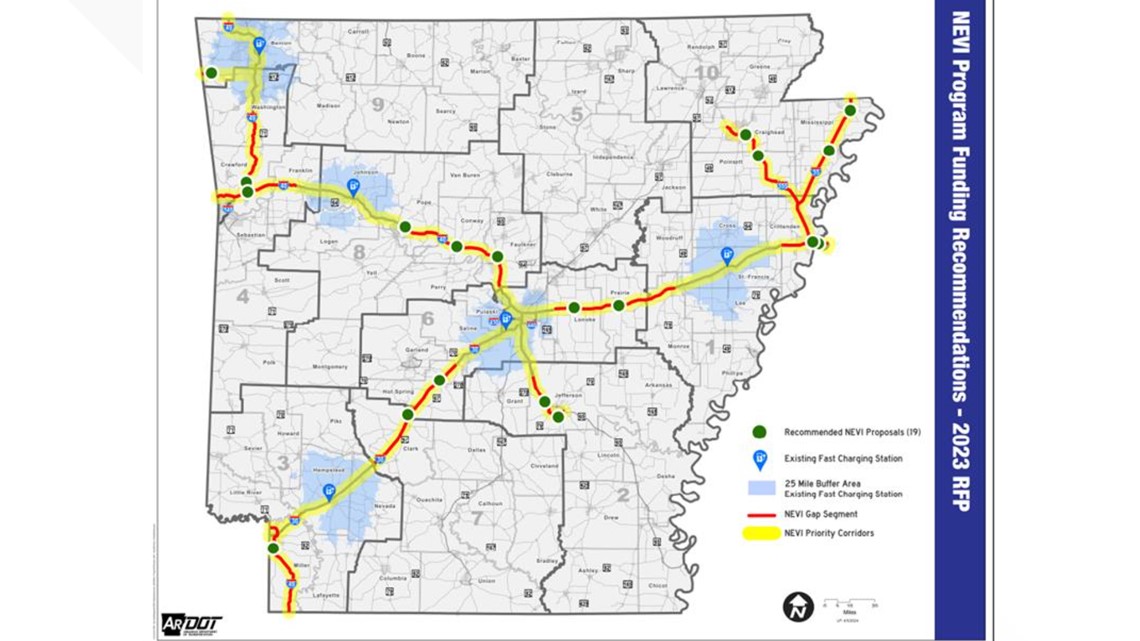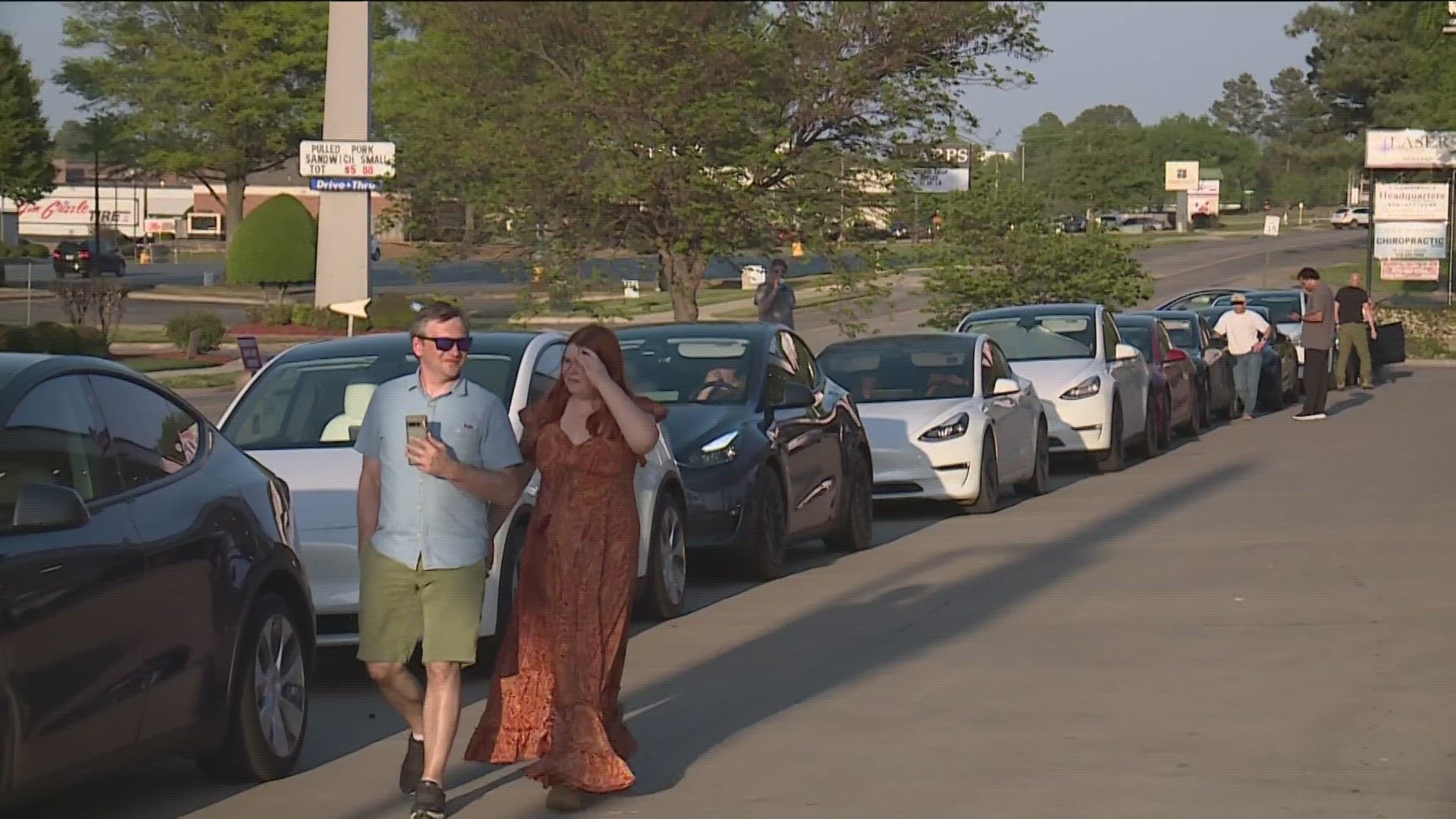ARKANSAS, USA — As the Arkansas Department of Transportation (ARDOT) announced the award recipients for the National Electric Vehicle Infrastructure (NEVI) program, it timely lines up with the need for more fast chargers in the state.
There were nearly 40 electric vehicle drivers waiting at Casey's gas station in Van Buren. Travelers were heading home after viewing the eclipse and realized there weren't many superchargers along major interstates.
James Shackleford was one of those people waiting to charge his car at this gas station after watching the eclipse. He found himself needing more energy— the kind of energy that could get him home.
"I was driving back from Russellville for the eclipse— obviously tons of people traveling this weekend for that— to Bentonville," he said. "Following the guidance of my car on which charger to go to, I went by Ozark and it said, 'Hey, this is busy. Go to the next one.' And so when I went by Ozark, you can see like maybe five or six cars in line. So I'm like, 'Okay, so I'll just go the next one' ... It told me to go to Van Buren. I get to Van Buren with 15% charge left and the line is literally blocking people from getting in and out of the gas station," Shackleford recalled.
He says he's never had to wait two hours to charge his car and considering the long line, he still was not completely charged.
"If they're full power 250-kilowatt Tesla chargers, it would take about between 10 and 25 minutes to charge," he said. "Yesterday, I charged from 15% to 50% in about 10 to 15 minutes. [It was] just the very minimum [that] I needed to get back to my home in Bentonville."
In the Natural State, there are only a certain number of fast charging stations along major highways, but ARDOT says the goal is to have it every 50 miles.
"What we identified is that while we have some charging stations along those highways, there are gaps, there are a lot of gaps in our coverage," Dave Parker, spokesperson for ARDOT, said.
ARDOT has distributed $15 million to 19 private businesses allowing them to build charging stations, which are all funded by the United States Department of Transportation (USDOT).
"20% is their money, and then they will get reimbursed 80% from the federal government," Parker said. "The goal of it is to build a national network of about 500,000 electric vehicle charging stations by the year 2030."
Shackleford hopes fast charging stations will be implemented in rural parts of the state as well.
"If your only option is a level two charger, it literally [takes] hours," he said. "To gain 10%, it could be two hours ... it's not really feasible for traveling."


Watch 5NEWS on YouTube.
Download the 5NEWS app on your smartphone:
Stream 5NEWS 24/7 on the 5+ app: How to watch the 5+ app on your streaming device
To report a typo or grammatical error, please email KFSMDigitalTeam@tegna.com and detail which story you're referring to.

